Pelvic pain in pregnancy leads woman to help others
- Published
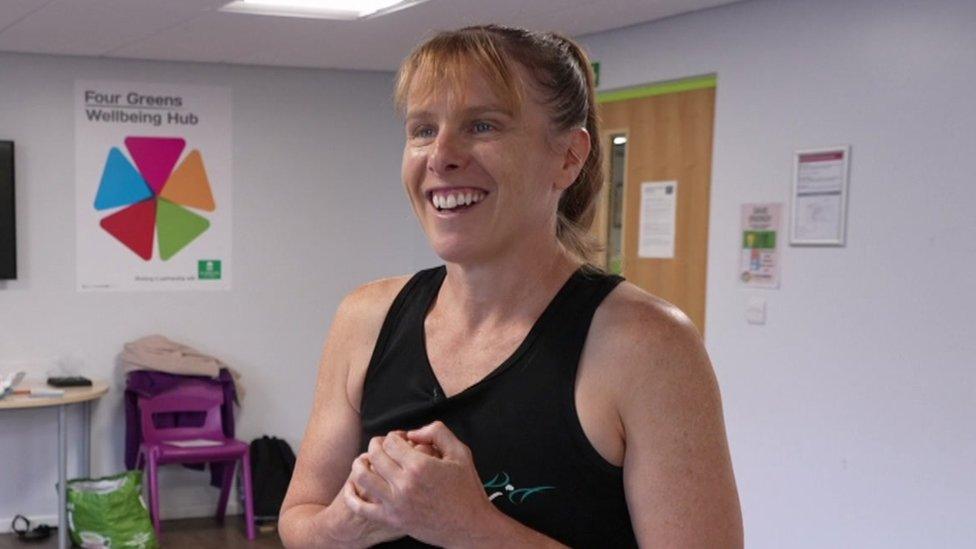
Sherilee Green has used her experience of pelvic pain in pregnancy to help others
When fitness instructor Sherilee Green found out she was expecting a baby at 40, friends told her she would sail through pregnancy.
But 12 weeks into her pregnancy, she started to have pain in her pelvis - pregnancy-related pelvic girdle pain (PGP) - a condition, external the NHS says can affect up to one in five pregnant women.
Sherilee, from Plymouth, explains how it affected her and inspired her to help others.
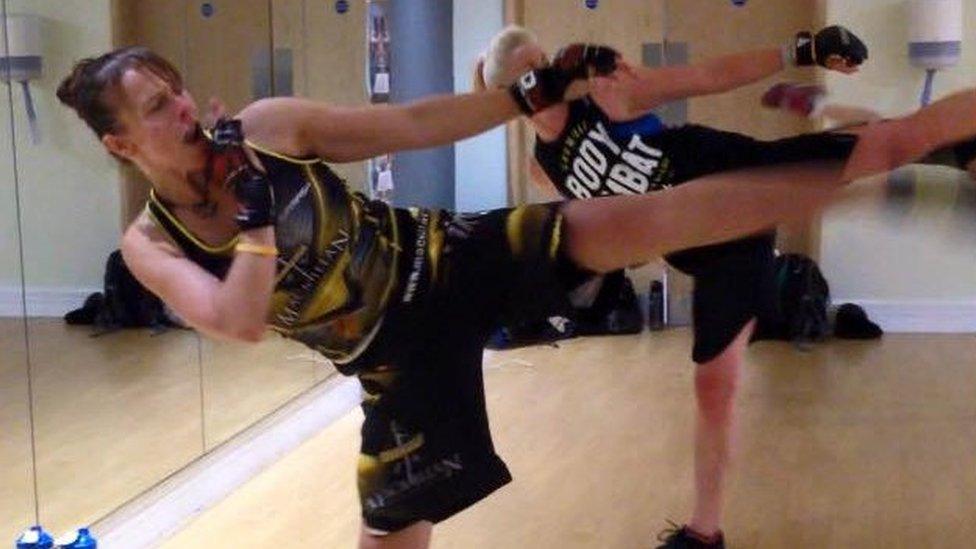
Before she had pregnancy-related pelvic girdle pain, Sherilee taught body combat classes
"When the pain in my pelvis started, I thought perhaps this was normal, but it rapidly got worse. By 16 weeks I was extremely uncomfortable, trying to hide how I was feeling and pretending all was fine.
I spoke to a doctor and midwife who advised I give up work and rest - 'Invest in as many box sets as you can', I was told. I was horrified.
I had to give up work and everything I loved.
All I had left was walking the dog, but even that soon became extremely difficult. I could not move my legs properly and the pain was like no other. I felt embarrassed and pathetic.
Six months ago I was teaching body combat and then I could not even walk my dog. The pain was absolutely crippling.

What is pelvic girdle pain (PGP) in pregnancy?
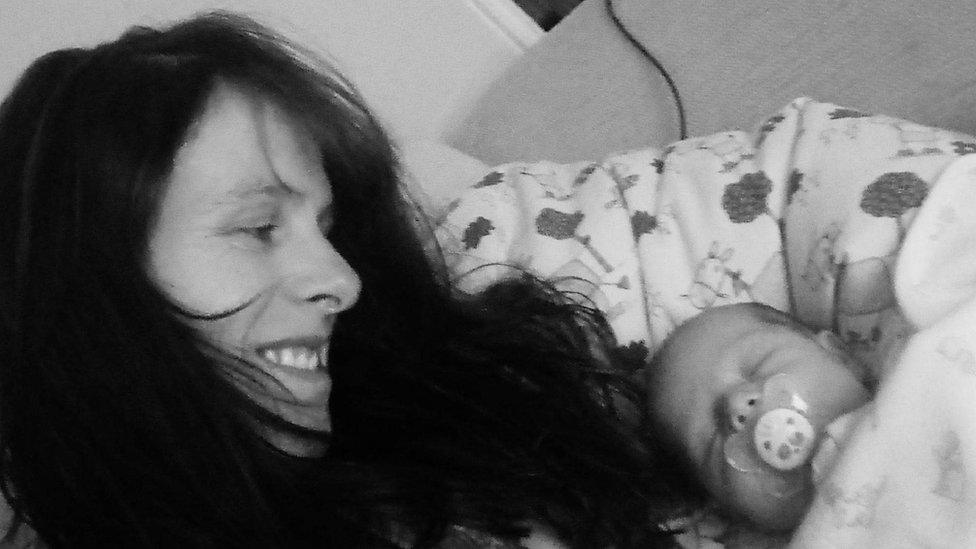
Women with PGP experience a variety of symptoms ranging from mild discomfort to severe pain
Pelvic Girdle Pain (PGP) is a pregnancy-related term used to describe pain experienced in the front and, or back of the pelvis. As many as one in five pregnant women may be affected by this condition
Women may experience a variety of symptoms ranging from mild discomfort to severe pain which interferes with daily life
Some women describe the discomfort as an ache, a shooting pain or the feeling of being kicked
Other symptoms of PGP may include pain and difficulty when walking or other movements involving standing on one leg such as climbing stairs, dressing or getting in or out of the bath
It may also be painful when moving your legs apart, for example, getting in and out of the car or turning over in bed. Clicking and grinding may be felt or heard in the pelvic area

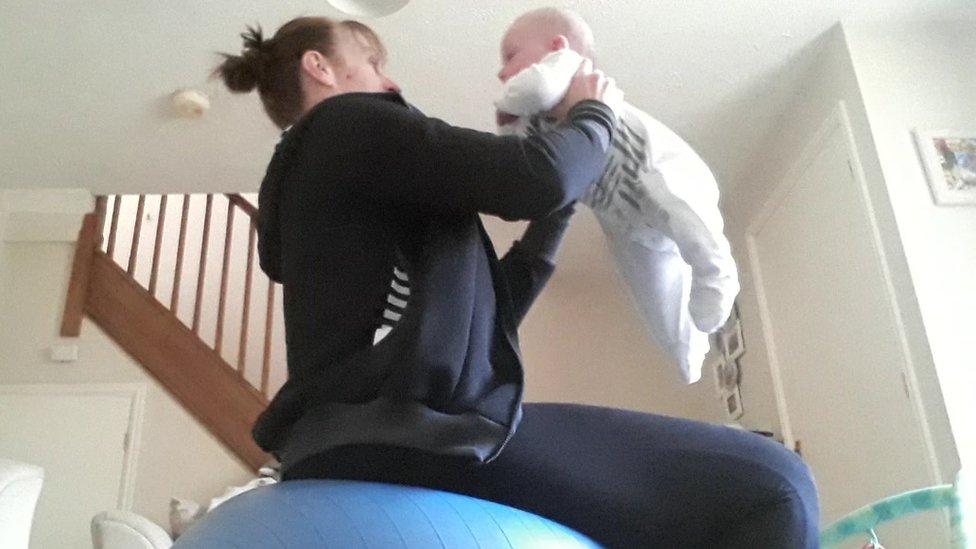
It took Sherilee months to be able to walk properly again and without pain
I finally got to see a physio on the NHS but was told there was nothing they could do for PGP. They gave me crutches, a support band and said to call back when the baby was six weeks old if I was still having problems.
The last few months of pregnancy were horrific. I became more isolated, restricted and my mental health deteriorated as well as my physical. To get around the house, I sat on my bum and used my arms to drag myself backwards.
I ended up having an emergency Caesarean section. I am told they nearly lost us both.
The first time I got out of bed in the hospital, I realised the PGP had not disappeared.
I phoned the NHS physio after six weeks but they had closed my case and I had to reapply to see them.
I eventually got help from a physio friend. It took months to be able to walk properly again and without pain and took about two years to teach classes and go back to work.

Statement from University Hospital Plymouth NHS Trust:
"While we are unable to comment on individual cases, we are sorry to hear this patient feels that they were not given adequate advice and support regarding their pelvic girdle pain.
"At University Hospital Plymouth NHS Trust, we have a specialist women's health physiotherapist and have a number of senior physiotherapists who can offer assessment and treatment for pelvic girdle pain in pregnancy.
"We accept patient referrals via GPs, consultants, and self-referrals by patients, and assess each patient on a case-by-case basis, to provide the most appropriate treatment and advice."

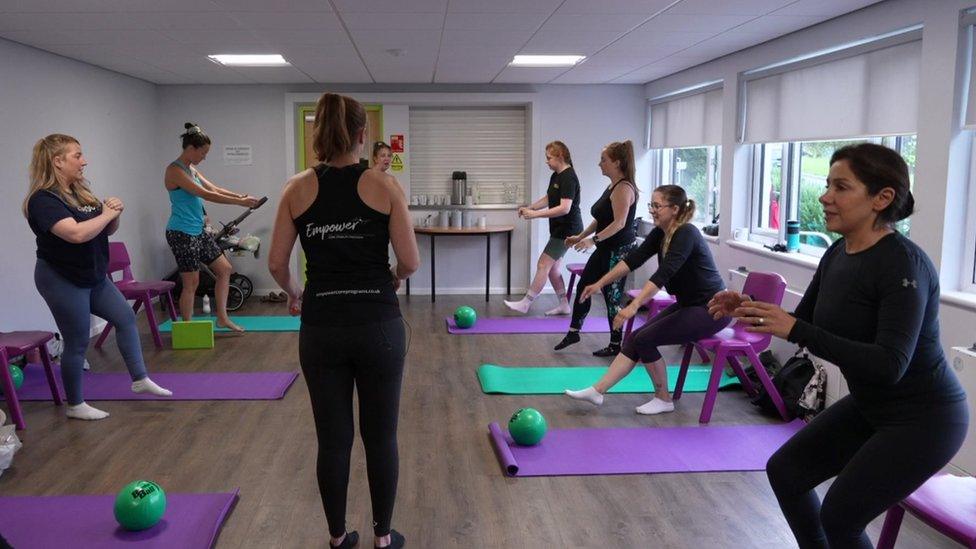
Sherilee said it was "unbelievably rewarding" to help other women experiencing the same issues she did
My son is now five and I am fine. But I was passionate about this not happening to other women unnecessarily. I thought if I could help one woman, then it was a success.
I qualified in both post and prenatal exercises as well as mental health and various other courses.
I started my own community interest company called Empower because I wanted to help women like me. We offer fitness and rehabilitation within a group environment for pre and postnatal women.
This programme is free or funded to anyone who needs it and I have made it my mission to stop what happened to me from happening to other women.
We rely on sponsorship from local companies and businesses as well as funding and grants from local authorities to help with this.
'Better version'
It is unbelievably rewarding. It has become huge - it is amazing seeing new mums keeping in touch and going out together having met on one of our courses.
When I met some of them, they had social anxiety or they could not walk and you see these photos of them playing rugby or climbing mountains and it is just amazing.
The classes we offer are always full but we pride ourselves on not turning anyone away, regardless of circumstance.
My story is a painful one, but over time it is one I have realised is not unusual.
I am still a fitness instructor, a personal trainer and a martial artist. But additionally I am a mother - and a good one at that.
I am still Sherilee, but I am a better version of her now."
As told to Hayley Westcott

Follow BBC News South West on X (formerly Twitter), external, Facebook, external and Instagram, external. Send your story ideas to spotlight@bbc.co.uk, external.
- Published5 August 2023
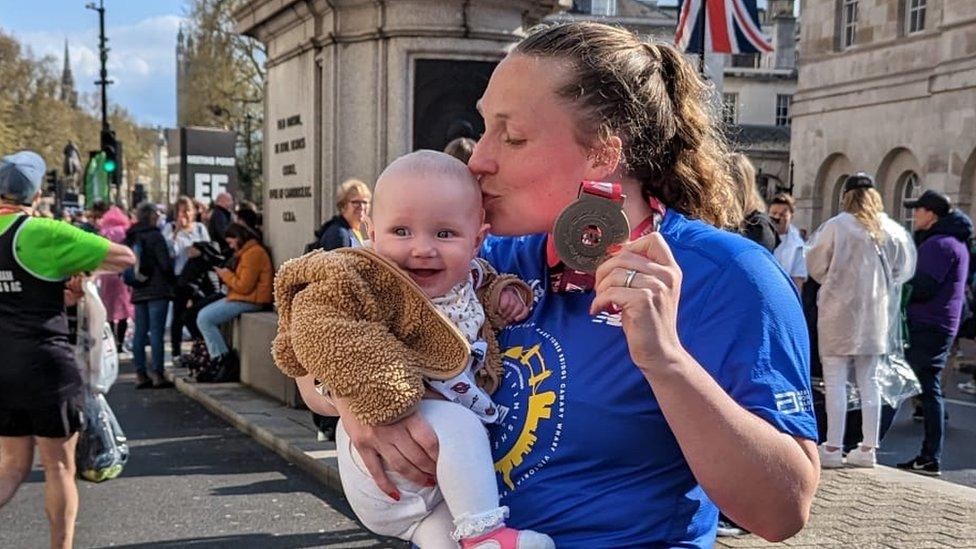
- Published31 July 2021
